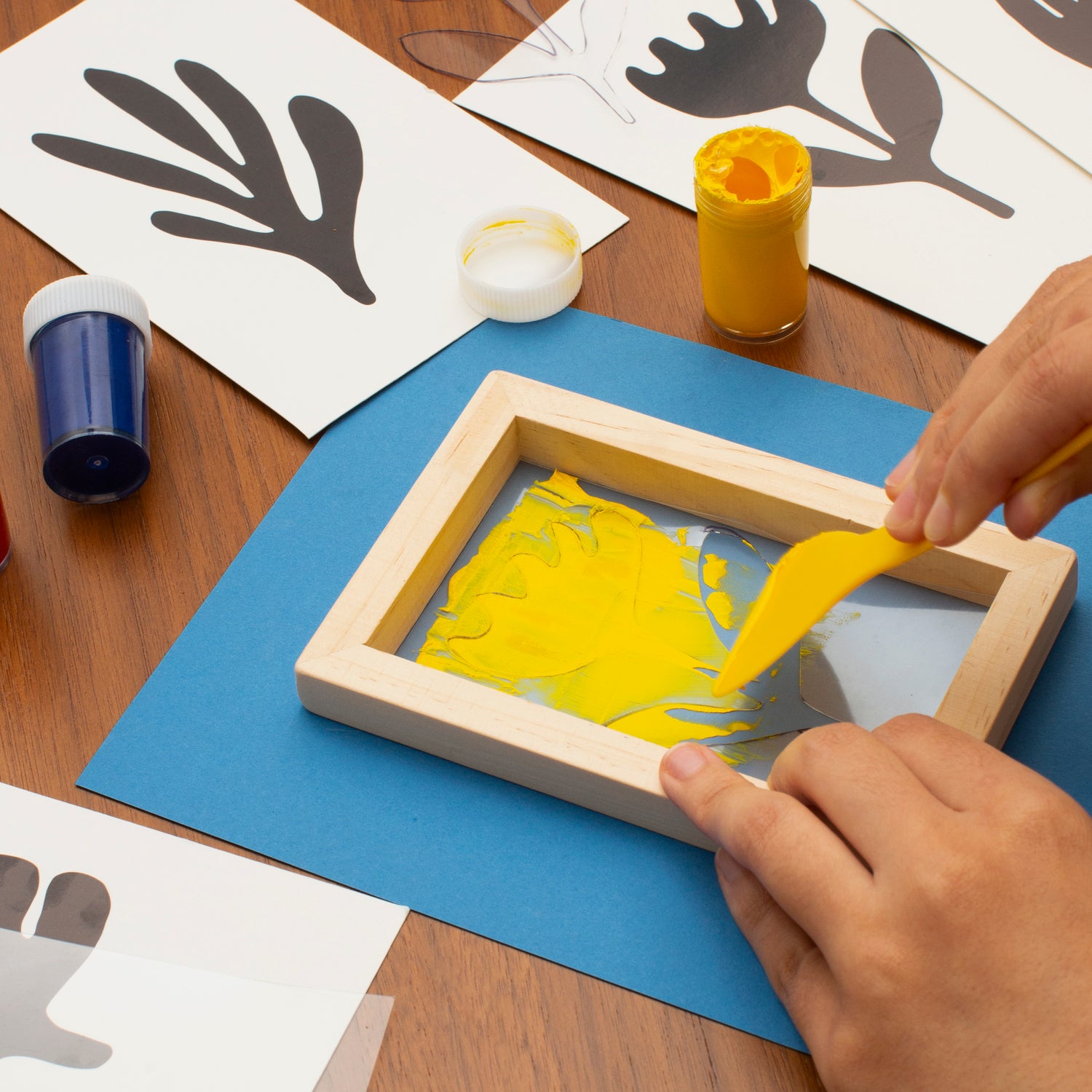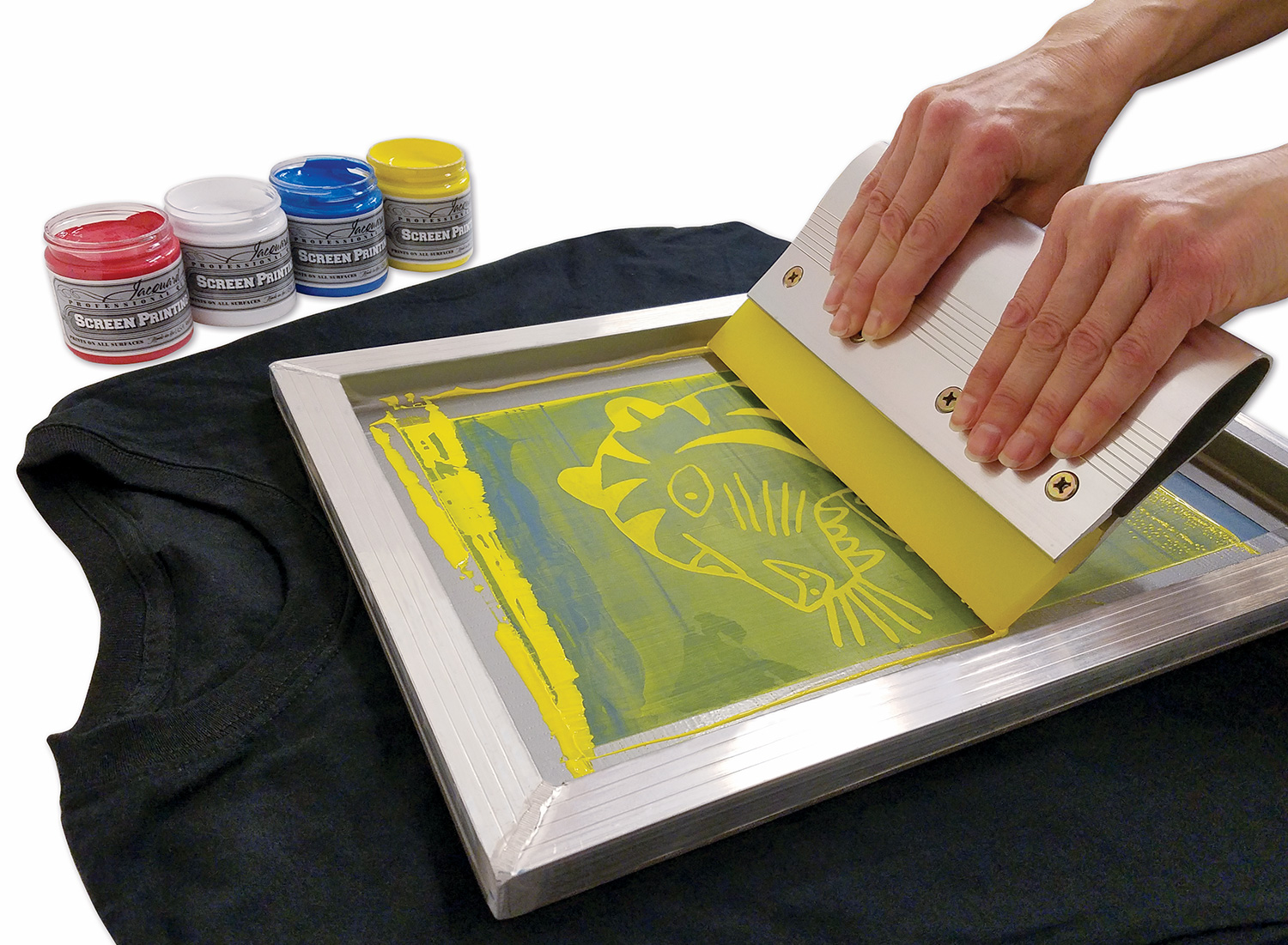The Crucial Overview to Recognizing Screen Printing and Its Versatile Utilizes
Screen printing has an abundant history that goes back to ancient times, evolving right into an innovative strategy made use of across various sectors today. This guide discovers the details of the screen printing process, outlining its applications in home, marketing, and style design - 10:9 Design Company. Comprehending these principles can open up innovative possibility for both commercial and creative projects. The complying with areas will certainly reveal vital pointers and strategies to enhance one's screen printing ventures
The History of Screen Printing
Although screen printing has origins that map back centuries, its evolution reflects the technological and artistic improvements of various societies. Coming from ancient China, the strategy was originally made use of for enhancing textiles and later infect Japan, where it became important to Ukiyo-e woodblock printing. The method shifted to Europe in the 18th century, where it gained appeal amongst artisans and industrial printers. The innovation of photo emulsion in the 20th century changed screen printing, permitting more intricate designs and better effectiveness. Artists like Andy Warhol better propelled its appeal, utilizing the medium to develop famous works that mixed commercialism and fine art. By the late 20th century, screen printing had developed itself as a flexible technique, used in style, advertising and marketing, and fine art. Today, it continues to advance, integrating electronic technology and increasing its applications across various sectors.
The Screen Printing Process Explained
Screen printing changes imaginative visions into tangible styles through a collection of precise actions. At first, an image is developed and afterwards moved onto a screen, usually constructed from fine mesh textile stretched over a structure. A light-sensitive solution is used to the screen, which is exposed to light, solidifying in locations not covered by the image. After washing out the unhardened solution, a stencil is developed.
Next off, the screen is placed over the substratum, whether it be fabric, paper, or one more material. Ink is then pressed via the open areas of the pattern utilizing a squeegee, transferring the design onto the substrate listed below. This procedure can be repeated for several shades, calling for different screens for every shade. The published thing is healed making use of heat to guarantee the ink adheres correctly, resulting in a sturdy, vivid design ready for usage.
Types of Screen Printing Techniques

Furthermore, specialized methods, such as discharge screen printing, eliminate color from the material to produce softer prints, while aluminum foil screen printing applies metallic aluminum foil to attain a glossy coating (10:9 Design Screen Printing). Each method provides distinct characteristics, accommodating various creative demands and manufacturing ranges, eventually broadening the possibilities within the screen printing domain name
Applications of Screen Printing in Numerous Industries

Additionally, the signs and advertising and marketing fields make use of screen printing for developing distinctive screens and banners. This method enables bold colors and detailed styles that record attention. In electronic devices, screen printing is utilized for using conductive inks to circuit card, important for element links. The home style market embraces screen printing to produce unique styles on fabrics and wall surface art. Overall, screen printing works as a vital device throughout varied fields, enhancing products with customized and aesthetically appealing graphics.
Tips for Successful Screen Printing Projects
While embarking on a screen printing task, mindful attention to detail can significantly boost the last outcome. Choosing premium materials is crucial; this consists of the screen, inks, and substratums. Making use of ideal mesh matters can influence ink deposition and information resolution. Prep work is similarly essential; thorough cleaning of displays and correct direct exposure times ensure crisp prints.
Next, accurate enrollment is vital for multi-color prints. Utilizing positioning tools can aid attain exact layering. Furthermore, testing prints on scrap materials before manufacturing helps identify possible problems without throwing away sources.

Regularly Asked Inquiries
What Products Are Finest for Screen Printing on Fabric?
Cotton and polyester blends are perfect for screen printing on fabric as a result of their toughness and ink absorption. Furthermore, specialized materials like silk or canvas can produce one-of-a-kind structures and finishes, boosting the general design quality.
Just how Do I Tidy and Maintain Screen Printing Equipment?
To cleanse and preserve screen printing equipment, one need to on a regular basis wash displays with suitable solvents, inspect squeegees for wear, lube relocating components, and store all things in a dry, dust-free atmosphere to prolong their More hints life expectancy.
What Are the Ecological Effects of Screen Printing?
Screen printing can have significant ecological impacts, consisting of chemical waste from solvents and inks, water usage throughout cleaning procedures, and energy intake. Eco-friendly products and sustainable techniques are important for reducing these unfavorable impacts.
Can Screen Printing Be Done at Home Successfully?
Screen printing can be properly done at home with the ideal products and techniques. Hobbyists can produce high quality prints, though success relies on their skill level, devices, and understanding of the procedure entailed.
What Are the Costs Connected With Starting a Screen Printing Company?

Starting a screen printing business entails costs for devices, products, and office. Initial expenditures typically more info here vary from a couple of hundred to numerous thousand bucks, depending upon the range, quality of equipment, and wanted manufacturing capability.
Screen printing has a rich background that dates back to old times, developing into an innovative strategy utilized across various sectors today. One more technique, rotating screen printing, utilizes round screens, facilitating continuous printing on textile rolls, consequently boosting efficiency for large-scale productions. Additionally, specialized techniques, such as discharge screen printing, eliminate dye from the textile to produce softer prints, while foil screen printing uses metallic aluminum foil to achieve a shiny surface. In the style sector, screen printing is extensively used to develop dynamic layouts on garments, allowing brand names to showcase their special styles. Cotton and polyester blends are ideal for screen printing on fabric due to their longevity and ink absorption.